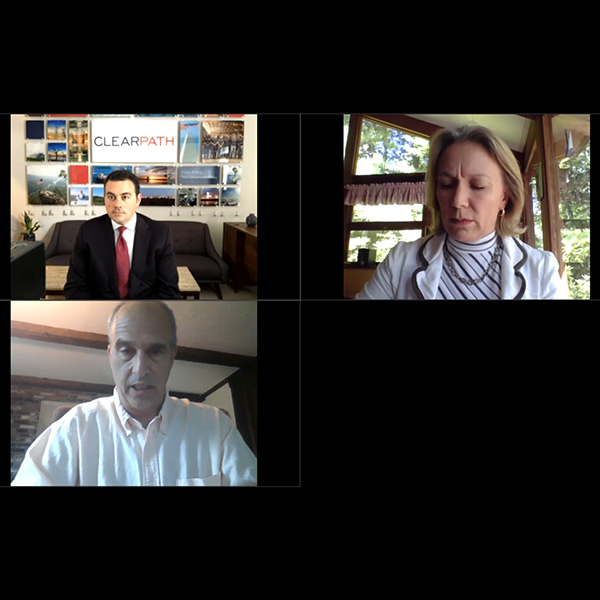MISO last week floated a proposal that would require network upgrades needed by projects in the generator interconnection queue to reach certain voltage and price levels before they could be tested for the economic benefits needed for cost-sharing eligibility.
But renewable proponents argue the plan wouldn’t do much for developers facing costly upgrades.
The proposal is a starting point for MISO’s effort to coordinate and align studies found in network upgrade planning in the interconnection queue and the RTO’s annual Transmission Expansion Plan (MTEP), Senior Manager of Economic Planning Neil Shah told stakeholders during a Planning Advisory Committee teleconference Wednesday. (See Regulators Not Sold on MISO Tx Planning Sync.)
Under the proposal, a generation project’s needed upgrade would need a minimum rating of 230 kV and cost at least $5 million to be eligible for evaluation as a possible market efficiency project (MEP), the same thresholds set out for MEPs in MISO’s proposed cost allocation plan, currently awaiting Local Projects Axed from MISO Cost Allocation Refile.)
MISO is additionally proposing that costs for a network upgrade submitted for economic evaluation can be spread across a group of interconnecting generation projects as long as they are $50,000/MW or higher. However, the projects necessitating the upgrade would need to have already completed the queue and executed a generator interconnection agreement (GIA) before they could be evaluated.
Shah said a GIA execution would help MISO avoid running economic analyses on projects that haven’t completed all interconnection studies.
“The benefit of this process is that it allows MISO and stakeholders an opportunity to compile and list all [generator interconnection] projects for economic evaluation rather that doing it on an ad hoc basis as interconnection projects come in,” Shah said.
He said MISO is aware that the RTO’s Environmental and Other Stakeholder Groups sector is critical of the proposal, arguing that it wouldn’t give interconnection customers certainty on future cost-sharing as they make their way through the definitive planning phase (DPP) of the queue.
Too Late
Sustainable FERC Project attorney Lauren Azar said the economic evaluation would still come too late for “bona fide” developers saddled with large network upgrades that could show regional economic benefits for others.
“This proposal is not going to solve the problem of generators being scared away by large increases, because by the time a generator interconnection agreement is signed, those customers would have already been scared away by large network upgrade costs,” Azar said. “I don’t think this scratches the itch of the problem we have before us.”
“We’re not going to wait until we have signed GIAs in order to get an economic evaluation. … This really doesn’t solve the problems. If folks get to a signed GIA, it’s likely that they can afford those upgrades,” Clean Grid Alliance’s Natalie McIntire argued.
But Shah said he didn’t think an economic evaluation earlier in the DPP would be feasible. Even if MISO were to figure out the timing issue, it likely wouldn’t make a substantial dent in project withdrawals because affected-system studies with neighboring grid operators — which come later in the interconnection process — also reveal high upgrade costs, he said.
Trust Queue Price Signals?
Stakeholders asked how interconnection customers could gain insight into whether their network upgrades could be economically beneficial.
Shah said it would depend on the customers’ access to tools and modeling — or by hiring of consultants, if they do not have tools to perform their own economic analysis.
“The interconnection queue is working as designed. We’ve got too many interconnection projects interconnecting at places where there isn’t enough transmission. It’s sending that signal to either reinforce the grid or go somewhere with less congestion,” WEC Energy Group’s Chris Plante argued.
Indiana Utility Regulatory Commission staffer Dave Johnston agreed, saying requests for proposals or power purchase agreements could benefit from inclusion of grid upgrade costs.
“We need a big transmission overlay if a lot of people in the footprint wanted to procure resources of those areas,” and that’s not happening, Johnston argued.
Azar said that while price signals are appropriate, network upgrades have never been evaluated for economic benefits, even though project developers are being told to build “backbone” transmission projects.
Apex Clean Energy’s Richard Seide said the 2017 MISO West network upgrade costs were so egregious that nearly all were canceled, even those projects with PPAs approved by state commissions. Of the 27 generation projects that entered the February 2017 MISO West queue cycle, all but two dropped out, hindered by expensive but necessary transmission upgrades to accommodate the projects that cost tens to hundreds of millions of dollars per project.
More to Come
Shah stressed that the proposal for making interconnection project network upgrades eligible for economic evaluation was just the first step that MISO is considering to align transmission planning processes. He asked stakeholders to consider whether its next step should be changing its annual MTEP model building timeline in order to get more data from the interconnection queue.
Shah added that MISO’s goal is to align the two processes and not disturb them — or the FERC-approved Tariff language that governs them — as much as possible.
“I hope that we don’t make perfect the enemy of the good,” McIntire said, arguing that generator interconnection planning doesn’t need to perfectly conform to the timeline of a year and pointing out that even MTEP studies begin prior to the plan’s approval year. “We don’t need to get too hung up on making this 365 days.”






